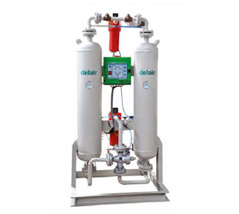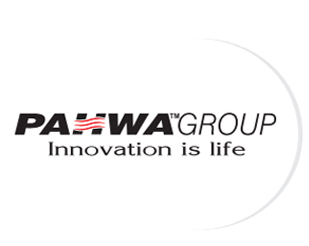Deepak Pahwa, Director, Delair | Bio Pharma World | January 2022
As per the Indian Pharmaceuticals Industry report, India Holds the 3rd position across the world in pharmaceutical production. The domestic pharmaceutical industry has a network of around 10,500 manufacturing units, with 3,000 drug companies in India. With such broad horizons, there has been a debate that not only large companies, but smaller firms also need to comply with the uncompromised quality of the products. With such a large market share at stake, pharma manufacturers must uphold the highest of standards.

There are several processes involved in the manufacturing of pharmaceutical products where dry compressed air is used in a wide range of production activities. From the creation of medicine formulas to the manufacturing of the final products, quality compressed air is required at every step. Even the Food and Drug Administration (FDA) recommends the use of air compressors to ensure the production of high-quality end products that complies with the industry standards. It would not be wrong to say that air compressors power a wide range of pharmaceutical applications.
The manufacturing of tablets and capsules involves pneumatic processes, where dry compressed air plays a key role in the mixing of ingredients, granulation, drying, pressing, and various levels of coating to give the required texture, colour, and flavour to the tablet. Likewise, in the manufacturing of liquid medicines, it monitors the balance of ingredients, purification of contaminants, and exact measurement of each formula. It is equally required for the manufacturing of ointments, creams, gels, and syrups.
But just focusing on manufacturing and not paying attention to the packaging can account for a wasteful endeavour. In packaging, compressed air aids in the cleaning and removal of the moisture from the bottles, tubes, or cans to avoid any risk of contamination and increase the shelf life of the product. Moreover, the bottles and cartons required for the shipping and distribution of medicines to the retail outlets are manufactured with the help of pneumatic machines that takes care of cutting, folding, printing, and packaging.
Being crucial to a wide range of intricate processes, it is important to ensure quality compressed air supply. Contaminants of any form like the presence of water/ moisture, dust particles, oil, and solid contaminants in the compressed air systems can adversely affect the air quality which can lead to substandard products.
The pharmaceutical products are highly hygroscopic. They tend to absorb the moisture in the compressed air and undergo physical, enzymatic, microbiological, and biochemical deterioration. This can acutely change the colour of the tablet coating and can even lead to certain chemical reactions. The moisture even causes blisters and breakage of the tablets. In addition to this, moisture-laden compressed air is responsible for the malfunctioning of pneumatic tools and machines. It can account for sluggish and inconsistent valves and cylinder operations. There are high chances of corrosion in pipelines, cylinders, and other components. During winters, there is another concern of freezing in exposed lines. Altogether, moisture can play havoc increase the downtime of the machines and also elevate the maintenance cost of pneumatic machines, tools, or controls.
Therefore, to counter the menace of moisture in compressed air, it is important to deploy efficient dryers for compressed air treatment in the manufacturing and packaging units of pharmaceutical processes. Delair, a company that deals in end-to-end Compressed Air Treatment offer a wide range of refrigeration and desiccant/ adsorption dryers. Both types of dryers entertain the same result but they differ in their principles of drying depending on the specific demand of the particular process.
The refrigeration method is used in processes where the air requirement is between 3° and 6° PDP. In this method of drying the air is cooled down to a nearly freezing point which removes the moisture followed by reheating the air to approximately 10° Celsius below the incoming compressed air at nominal conditions. On the other hand, adsorption or desiccant drying is deployed for extra dry air to achieve PDP below 2° Celsius. It works on the principle of heatless regeneration where the desiccant is employed to adsorb and desorb the water vapour. It delves on the pressure swing principle/purges air to regenerate the desiccant bed. Therefore, to meet the pharmaceutical air standard, it is imperative to install compressed air-drying systems to avoid any sort of contaminations or disruptions and also ensure the proper functioning of the pneumatic machines.






